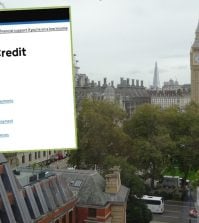Finland decides not to expand basic income trial

The Finnish government has decided not to extend a pilot programme that provides people with a basic income, and plans instead to explore alternative welfare schemes.
The two-year programme, which is the first trial of a form of basic income to be mounted by a European government, pays a monthly income of €560 (US$670) to a random sample of 2,000 unemployed people aged 25 to 58 and is due to run until the end of this year.
The aim of the trial is to see whether a guaranteed income and simplified social security system can increase the employment rate by incentivising people to work. Participants are not required to seek or take up employment, and continue to receive the cash if they get a job.
However, the government has turned down a request from Finland’s social insurance institution Kela, which is running the trial, for extra funding to extend the programme to a further group of people who are already in employment.
Awaiting results
The concept of universal basic income is attracting interest around the world as a possible solution to the challenges of automation and globalisation, which may reduce employment rates. And Finland’s decision not to extend the pilot met with a rash of headlines declaring the scheme had been scrapped or had failed.
The media ruckus prompted research team leader Professor Olli Kangas to issue a statement saying that the trial is proceeding according to plan and the effects of the programme will not be studied until after it has been completed, with the results due by early 2020.
“The effects of the experiment will not be published while the experiment is in progress, because a public discussion of the results could influence the behaviour of the test and control groups,” he said. “That would lead to skewed results.”

A regional office of Kela, Finland’s social insurance institution who have been denied extra funding to extend the basic income programme to a further group of people who are already in employment (Image courtesy: Kotivalo).
More research required
Earlier, Kangas told Finnish public broadcaster Yle that a two-year trial period is too short to be able to draw extensive conclusions from such a large experiment. “We should have had extra time and more money to achieve reliable results,” he said, as reported by The Guardian.
The OECD’s latest economic survey on Finland, which was published in February, found that the basic income model used in the trial would be “too costly” to implement on a national scale and a ‘universal credit’ system would be more effective.
Meanwhile, the Finnish government introduced legislation in December making some benefits for unemployed people contingent upon working at least 18 hours every three months. Plans are now afoot to mount a new trial of a form of universal credit, modelled on the British system, in which various benefits are combined into a single payment – with the goal of ensuring that paid work always increases people’s income.
Other basic income trials are being mounted include Kenya, Ontario, Scotland and California.





















